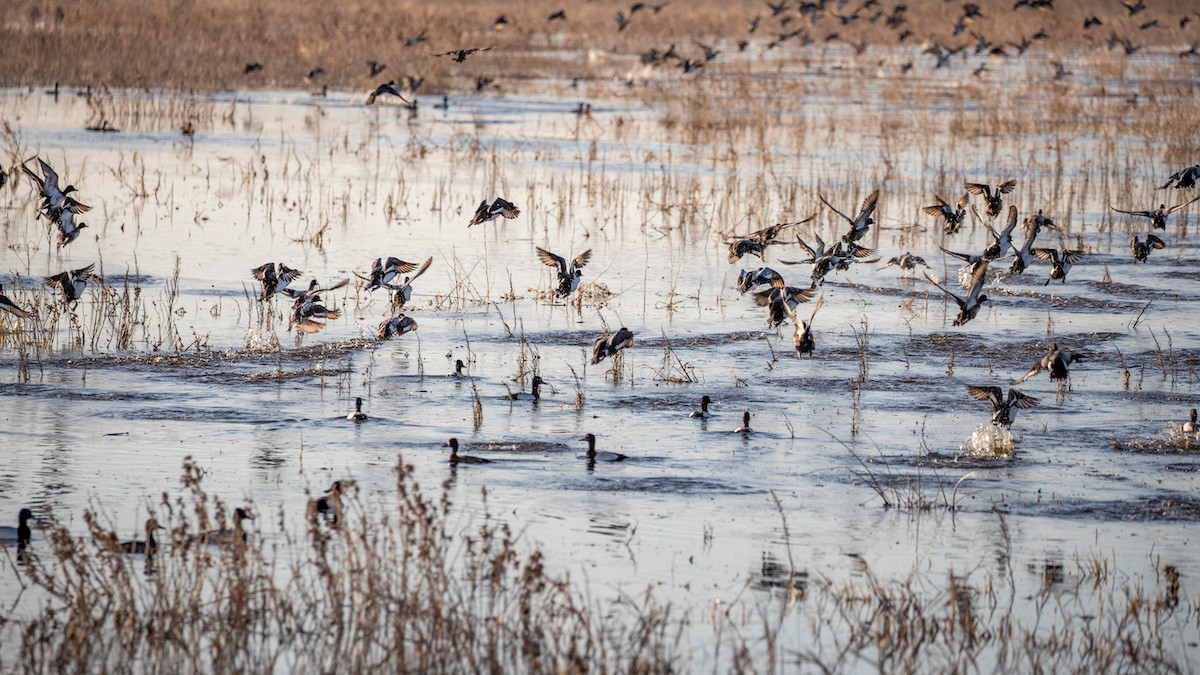
It’s time to be honest with yourself. Your buddy sounds way better on a call, everyone in the blind tells you to “take it easy” when you so much as quack, your sole job in the blind is running the spinner remote, and every time you try a new duck call, it just doesn’t sound like the guy that sold it to you.
You don’t have to be ready for the stage at Stuttgart, but acknowledging your poor calling and learning a few basic calling principles will increase your knowledge of the birds, make you a better hunting partner, and help you be more successful in the field. My friend Bret Ayers, an accomplished competition caller and hunter alike, will tell you it starts with form and fundamentals.
You Lack Form and Fundamentals “Just like any musical instrument, a duck call requires basic fundamentals,” Ayers said. “Holding the call properly, the correct air presentation and timing. Without these it’s hard to make the proper sounds.”
Ayers is right. If you don’t pay attention to the basics, you’re starting off at a major loss. Lip and hand placement are everything, and the best analogy is an easy one to understand. Pick up a bottle of water or pop and take a swig; if you drink how most people drink, your top lip presses against the front of the bottle opening, and your bottom lip wraps around the bottom rim of the lid. Both lips aren’t pursed like you’re kissing the bottle, and the bottle opening isn’t past your lips and into your mouth.
For hand placement, your hand should form a C on the call, with your pointer and middle fingers wrapped around the insert. your middle finger should slightly hang off the end of the insert, and your thumb wrapped under the bottom side. This is the beginning of calling waterfowl, and it shouldn’t be overlooked when you’re first starting to practice. Form needs to be second nature.
You Aren't Practicing Enough This summer I had a couple hours of driving all by myself, a rare and perfect time to get in some calling practice. I keep my lanyard strung around the headrest of my seat, so I can get myself back in goose calling shape. I was only 15 minutes in, and my lips and cheeks were completely shot. It was an ugly reminder that I hadn’t picked up a call since season ended. Bret is quick to point out that I’m not alone in my lack of practicing.
“The majority of hunters don’t pick up a call until a couple weeks before season or even on opening morning,” Ayers said. “Practicing a couple hours a week in the offseason will improve your skills tremendously.”
Of course we should practice more, because I have yet to meet a hunter who can run around picking up birds while simultaneously never running out of breath in the call. Frankly, you can’t be in too good of calling shape.
Beyond that, our ability to communicate with birds is one of the best opportunities we have to differentiate ourselves from every other Tom, Dick, and Harry in the marsh, so we ought to keep our skills sharp.
You Don’t Listen to the Ducks...or Yourself If you don’t know what the ducks in the wild sound like you aren’t going to be adequate in your ability to talk back to them. Tuning into the sounds of relaxed ducks on the ground will go a long way in developing yourself as a caller.
A great example is the feed chuckle. If you listen to some mallards on a pond, you’ll more than likely hear it, but it won’t be a loud 15-second chuckle like you see so many people do while hunting. Instead it will be a soft and content sound mixed into the background of the hen’s quacks and the “greeps” of a drake mallard. This isn’t to say that chuckling won’t call in ducks; rather, it’s just a good anecdote of how we often let our own human misconceptions run the call rather than the sounds of birds themselves.
Ayers and I both agree that you have to spend some time listening to ducks. “If you want to sound like a duck, go find some ducks and replicate their sounds,” Ayers said. “A local park or refuge is a good place to study the sounds a mallard makes. Use today’s technology and record them.”
If you have spent some time listening and think you have a good grasp of the duck’s vocabulary, the next step is to listen to yourself calling. Most callers benefit from setting their phone on record, listening to their calling, and then comparing it to a clip of a real duck or even a professional caller. Hearing yourself from the other side of the call really helps understand the nuances of tone and pitch, and what you need to change.
The reality about calling ducks is like most things in life; with some fundamentals and practice, you can better your experience. The sight of a drake mallard dropping into the spread from your calling is well worth a summer of sore lips.





Conversation